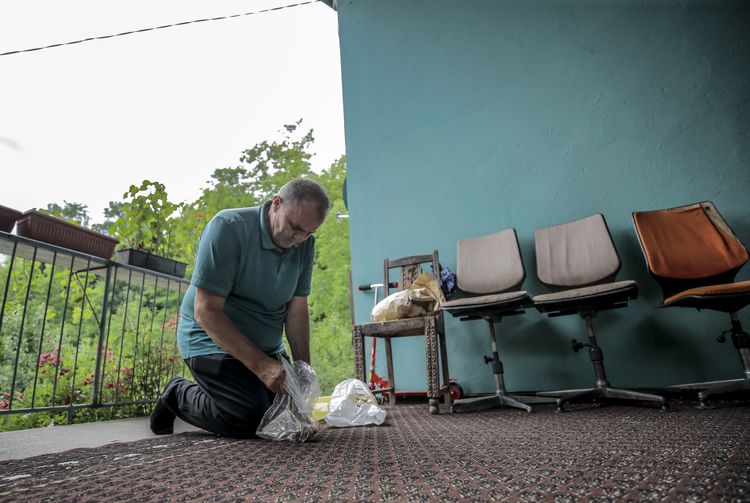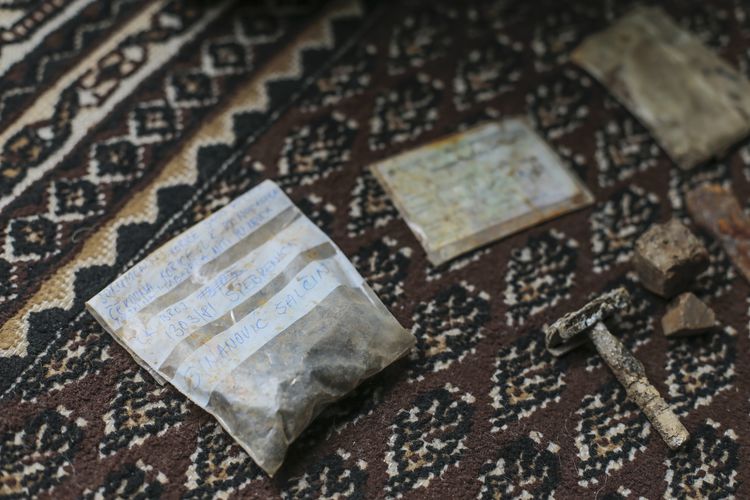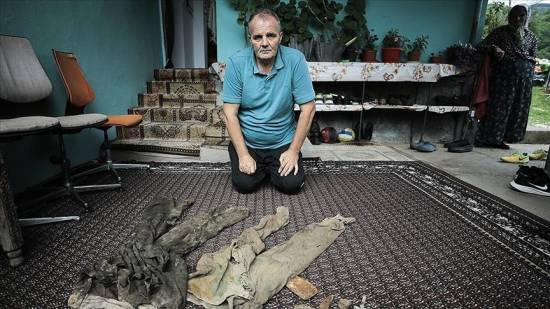27 years after Srebrenica genocide, father to be laid to rest with sons
The remains of a Bosnian father will be buried next to his two sons in a commemorative ceremony on Monday.
Salcin Sinanovic's remains were found in two separate mass graves -- 27 years after the Srebrenica genocide, Europe’s worst massacre since World War II.
The sons, Senad and Sadik Sinanovic, were also victims of the genocide in which more than 8,000 Bosniak civilians were killed by the Serbs on July 11, 1995.
Speaking to Anadolu Agency, Mirsad Sinanovic, one of the surviving sons, said his brothers were 26 and 19 years old when they were killed in the genocide.

The brothers were buried in 2012 after their remains were found in mass graves, said Mirsad Sinanovic
Recounting the events of the fateful day, he said they used to live in the village of Urisi, 35 kilometers (22 miles) from Srebrenica, a UN safe zone.
To escape attacks by the Serbs, he set out with his father and two brothers to the safe zone.
"We were moving in an unknown direction in the forest. There were thousands of people and everyone was trying to escape from the area. All of a sudden, we heard a voice saying 'armed forward, unarmed back'. So I went to the front lines. My father and brothers were left behind. I heard they were captured.”
He said he has kept safe his father's belongings which were recovered from the grave.

"He had a great sense of humor, calm and well-intentioned person," Mirsad Sinanovic said, adding that he only has a picture of his father to hang on to his memory.
"My father's bones, his lighter, shaving tools and clothes, were also removed from the mass grave. Now when I look at those belongings, it gives me some peace."
Fifty more genocide victims will be buried at the commemoration and funeral ceremony to be held on July 11.
Srebrenica genocide
In July 1995, Srebrenica was besieged by Serb forces who were trying to wrest territory from Bosnian Muslims and Croats to form a state.
The UN Security Council declared Srebrenica a “safe area” in the spring of 1993. However, Serb troops led by Gen. Ratko Mladic -- who was later found guilty of war crimes, crimes against humanity and genocide -- overran the UN zone.

Dutch troops failed to act as Serb forces occupied the area, killing 2,000 men and boys in a single day on July 11.
About 15,000 Bosnian people fled to the surrounding mountains, but Serb troops hunted down and killed 6,000 more people.
In 2007, the International Court of Justice in The Hague ruled that genocide had been committed in Srebrenica.
On June 8, 2021, UN tribunal judges upheld in a second-instance trial a verdict sentencing Mladic to life in prison./aa


